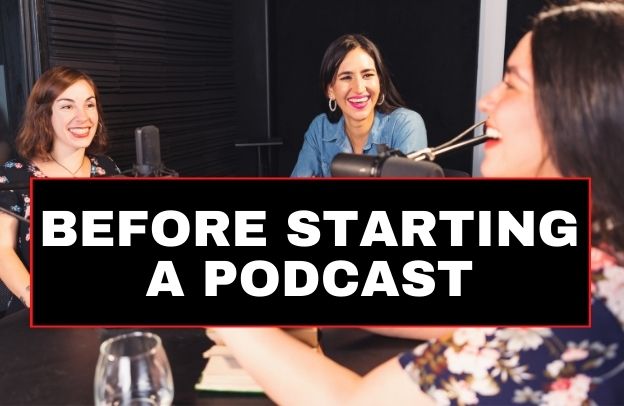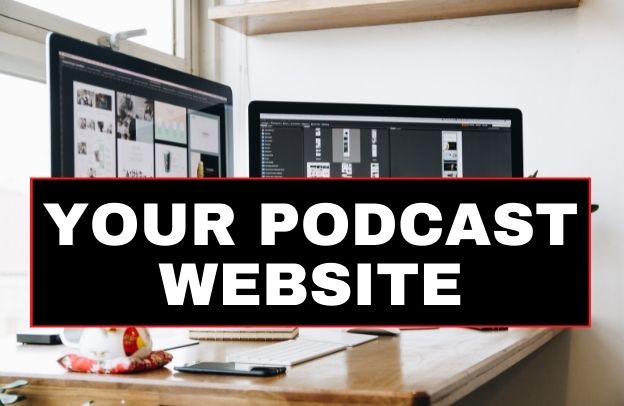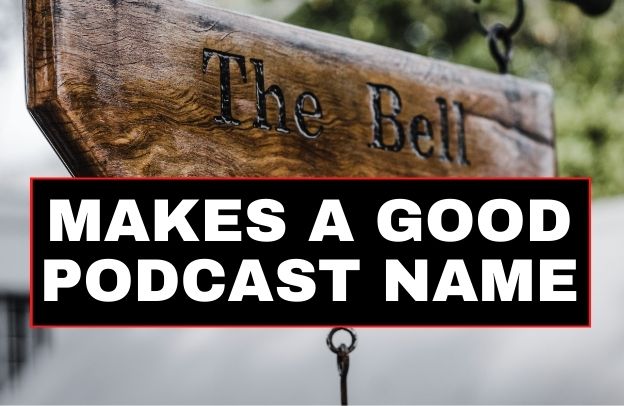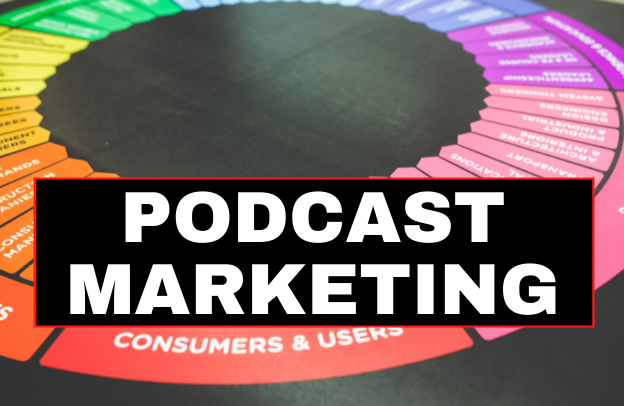Podcasting as a Marketing Powerhouse: Strategies to Promote Your Creative Business

Are you looking for effective strategies to promote your creative business? Do you need to consider podcasting as a marketing powerhouse to leverage? In the ever-evolving landscape of marketing, creative entrepreneurs face a growing challenge: how to cut through the noise and connect with audiences in an authentic, meaningful way.
Not sure whether to own or be more intentional with your podcast? Take this quick survey to find out.
Traditional marketing channels such as blogs, social media, and email campaigns still have their place, but as audience habits change, many are finding that these tools aren’t enough to establish deep connections with clients anymore.
That is where podcasting comes in, a platform that has rapidly grown from a niche medium into a marketing powerhouse, capable of driving engagement, building trust, and growing your creative business.
Unlike you might have been imagining, podcasting is not just a passing trend; it’s a powerful, versatile tool for creative entrepreneurs. With over 464.7 million podcast listeners globally in 2023, this medium is projected to keep growing, reaching an estimated 504.9 million by 2024.
According to Emarketer in its publication, “Global Podcast Listener Forecast 2021–2025”, the number of monthly podcast listeners increase by 15.5% among the 18 countries of their forecast, for a total of 383.7 million. Here is a table showing the number of global podcast listeners over the years:
| Year | Global podcast listeners |
| 2024 | 504.9 million |
| 2023 | 464.7 million |
| 2022 | 424.2 million |
| 2021 | 383.7 million |
| 2020 | 332.2 million |
| 2019 | 274.8 million |
What does this mean to you? As audiences become increasingly selective about the content they consume, a podcast offers a unique opportunity to showcase your expertise, share your story, and build lasting relationships with potential clients.
Now, here’s how to harness the full potential of podcasting as a marketing tool for your creative business.
The Podcasting Boom: Why Now?
You may wonder why podcasting has become so essential to creative entrepreneurs today. The answer lies in how people consume content. As the digital world continues to grow, audiences crave more intimate and meaningful content than ever before.
See also How to Make Money with Your Podcast Through Affiliate Marketing.
They want connection, and podcasting offers just that. Unlike social media posts that can be quickly scrolled past, podcasts are often consumed in full, allowing listeners to engage deeply with the subject matter.
According to a report, about 64% of the U.S. population had listened to a podcast in 2023. This shows that podcasts are no longer a fringe medium—they are mainstream, with listeners tuning in during commutes, workouts, and daily tasks.
For creative entrepreneurs, this presents a massive opportunity. While other content channels might struggle for attention, podcasting offers a captive, highly engaged audience. In fact, over 80% of podcast listeners finish most or all of a podcast episode they start.
What makes podcasting so compelling is its ability to build trust through authenticity. It’s one thing to read a blog post or social media update, but hearing someone’s voice creates a more personal, emotional connection.
As a creative entrepreneur, you have a unique opportunity to tap into this format and create content that resonates deeply with your audience.
Establishing Your Podcasting Brand
The first step to launching a successful podcast is to define your podcast’s brand—its core mission, tone, and the message you want to share. The key here is alignment.
Your podcast should be an extension of your creative business, aligned with your personal values, your products or services, and your long-term goals. Think of your podcast as your audio business card. To craft a strong podcast concept, start by answering these questions:
- What does your business stand for?
- What problems do your clients face,
- And how can your expertise solve them?
By clearly defining your focus, you will be able to attract a loyal audience that’s interested in exactly what you have to offer.
For example, if you run a graphic design studio, you might create a podcast that discusses the intersection of design and branding, sharing insights on how small businesses can visually differentiate themselves in a crowded market.
The more focused your content, the more you will be able to position yourself as a thought leader in your industry.
Once you have your concept, think about your target audience. Who are they? What are their interests, challenges, and aspirations? The more you know about your audience, the easier it will be to create episodes that resonate with them.
Keep in mind that podcast listeners are often highly educated and tech-savvy. According to data from Nielsen, podcast audiences are 45% more likely to have a college degree compared to the general U.S. population.
This is great news for creative entrepreneurs who want to market their services to professionals seeking expertise and high-value content.
Leveraging Podcasting to Showcase Your Expertise
Your podcast is an ideal platform for positioning yourself as an expert in your field. Think about it—when listeners tune in to your show, they are choosing to spend their time with you, meaning they’re already interested in your insights.
Use this to your advantage by sharing valuable, actionable advice that demonstrates your knowledge.
One of the best ways to do this is by sharing case studies or stories of past successes. For example, if you’re a photographer, you might recount how you helped a small business revamp its branding through powerful visuals.
See also Signs Of Identity Crisis – Reinforce Your Personal Identity In 7 Days.
Providing listeners with specific, real-world examples will help you build credibility and inspire them to seek out your services.
Interviewing other experts is another great way to expand your network while providing value to your listeners. Invite guests who complement your expertise—whether they’re in related creative fields or have insights that will be useful to your audience.
Not only does this diversify your content, but it also opens the door to cross-promotion and collaboration, further expanding your reach. See Obehi Podcast Testimonials to learn about what guests are saying about Obehi Podcast’s interview style.
Maximizing Podcasting for Business Promotion
Once your podcast is up and running, it’s time to think about how you can leverage it to promote your creative business. One of the most effective ways to do this is through content repurposing.
Every podcast episode you release can be turned into multiple pieces of content across different channels—blog posts, social media snippets, and email newsletters. By distributing your content widely, you’ll increase the chances of reaching new listeners while reinforcing your message.
For example, you can transcribe your podcast episodes and turn them into blog posts optimized for SEO. This not only drives traffic to your website but also ensures that your insights are accessible to people who prefer reading over listening.
You can also create audiograms—short audio clips with visual elements to promote your episodes on platforms like Instagram and LinkedIn. By repurposing your podcast content, you’ll maximize its impact and ensure that it reaches a broader audience.
Another crucial strategy is to incorporate effective Calls to Action (CTAs) within your episodes. Whether you’re promoting a product, service, or newsletter, a well-placed CTA can convert listeners into paying clients.
For instance, if you offer web design services, encourage listeners to visit your website for a free consultation, or offer an exclusive discount to podcast listeners. By providing value and making it easy for your audience to take the next step, you’ll turn passive listeners into active clients.
To see a clear picture of what we are talking about here. Listen to the Obehi podcast interview and you will see that in some pitches at the beginning of the episode. You can do the same with your own podcast.
Lastly, you can monetize your podcast directly through sponsorships, affiliate marketing, and paid subscriptions. As your audience grows, you will have more opportunities to partner with brands or companies that align with your values, offering another revenue stream for your business.
According to a study by IAB, podcast ad revenues in the U.S. surpassed $2 billion in 2022 and are projected to reach $4 billion by 2024. This demonstrates the growing interest in podcasting as an advertising platform—and the potential for you to benefit financially.
Building Influence Through Consistency
Consistency is key when it comes to podcasting. Just like any content strategy, sporadic posting won’t build a loyal audience. Successful podcasts release episodes on a regular schedule, whether that’s weekly, biweekly, or monthly.
It’s important to choose a frequency that works for you, so you can maintain the quality of your episodes over time.
See also How To Get More Listeners To Your Podcast
Consistency doesn’t just apply to how often you post, but also to the quality of your content. High-quality audio, thoughtful editing, and engaging storytelling are all essential to keeping your audience coming back for more.
This is especially important for creative entrepreneurs whose reputation is built on their creative output. A polished podcast reflects your professionalism and attention to detail.
Beyond the podcast itself, make an effort to engage your listeners on other platforms. Build a community around your show by encouraging feedback, answering listener questions, and fostering discussions on social media.
Not only does this deepen your relationship with your audience, but it also turns your podcast into a dynamic part of your broader marketing strategy.
Case Study: Success Stories of Creative Entrepreneurs
To see the impact of podcasting in action, consider the story of Debbie Millman, a graphic designer, brand strategist, and host of Design Matters, one of the world’s first podcasts on design.
Millman started her podcast in 2005, and over the years, it has grown into an interesting platform that’s interviewed some of the most influential creative minds. As a result, she has built an impressive personal brand that extends far beyond her initial business ventures.
Similarly, Pat Flynn, the host of Smart Passive Income, started podcasting as a way to share his experiences in building passive income streams.
His podcast now generates significant revenue through affiliate marketing and sponsorships, and Flynn has expanded his business into courses, books, and speaking engagements.
These stories demonstrate how podcasting can propel creative entrepreneurs to new heights by establishing authority and building a loyal following.
Conclusion on Podcasting as a Marketing Powerhouse
In a world saturated with content, podcasting stands out as a medium that fosters genuine, personal connections. For creative entrepreneurs, it offers an unmatched opportunity to share your story, showcase your expertise, and promote your business in a way that resonates deeply with your audience.
Whether you are just starting out or looking to take your business to the next level, podcasting can be a game-changing tool in your marketing arsenal.
See also 8 Best Guide to Profit from Podcast Marketing.
By following the strategies outlined in this article—crafting a compelling podcast brand, repurposing content, leveraging CTAs, and maintaining consistency—you will be well on your way to building influence and driving business growth.
Now is the time to start podcasting and unlock its full potential for your creative business.
Not sure whether to own or be more intentional with your podcast? Take this quick survey to find out.





